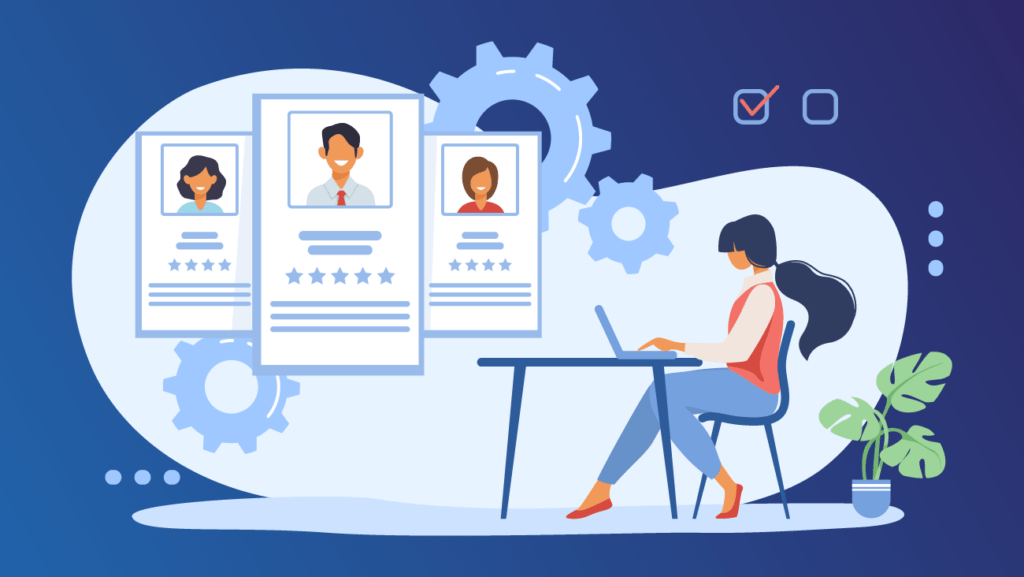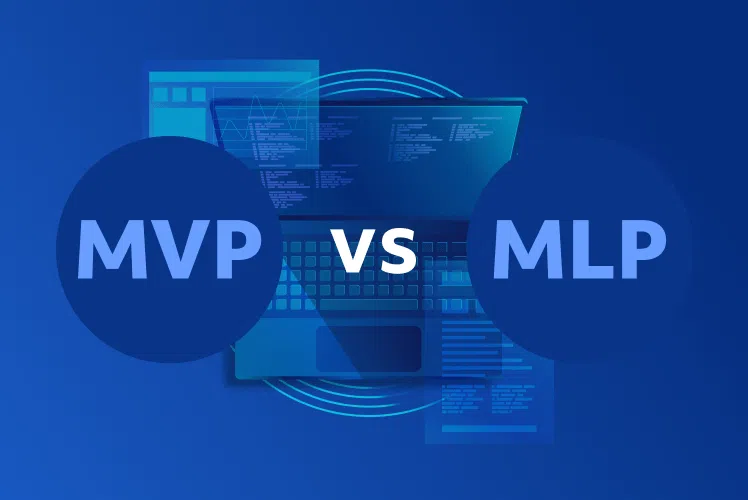An HR software system is a lifesaver when it comes to the management of numerous HR-related processes. Such systems can automate mundane manual tasks, streamline workflows, and overall significantly facilitate the work process for HR specialists.
There are many available HR software solutions in the market so it can be quite challenging to choose the right one. In this article, we will overview the main things to consider when choosing an HR system for your organization.

What is HR software and why is it so important?
An HR software solution is designed specifically for the needs of the HR department. Though this software can vary in functionality, its main purpose is to facilitate and optimize the work of HR specialists and automate a number of certain tasks.
Some may say: hey, we are doing things the old way and it works out pretty well! However, you can’t deny the following benefits that the implementation of the HR software brings:
- Automation of manual tasks: eliminates mundane and time-consuming manual tasks and speeds up the work process.
- Centralization: a specialized solution stores all the data and all related processes in one place.
- Transparency: all authorized users can instantly access the needed information.
- Increased speed and productivity: the system takes care of all routine tasks and performs them in a fast and accurate manner.
We should note though that it’s not obligatory to use an HR system unless you have a medium or big team and a lot of processes going on. Small companies and startups can manage their HR processes without specialized software. However, as the company grows, the number and complexity of processes will grow as well so you might consider implementing such a system in the future.
The next question to ask is what should you look for in an HR system in case you decide to get one? First, you should choose between a readymade or a custom system.
A readymade solution is instantly available and is built with a certain set of features. Examples would be BambooHR, SAP Success Factors, Zenefits, etc. Even though such solutions may require additional setup and configuration, it doesn’t take much time to get started.
Custom solutions are the ones built from scratch and in accordance with your specific requirements and needs. Though it will obviously take a while to design such a solution and it will be more expensive than a readymade one, this option has several undeniable benefits. We will look at them in more detail a while later.
Three main types of HR software
Another important thing is choosing the type of HR software that you need. Since HR is a very broad area that involves multiple aspects, there are three main types of HR software systems out there:
- HRIS: Human Resource Information Software
- HCM: Human Capital Management
- HRMS: Human Resource Management Software<
Let’s start with HRIS. This type of system involves all major HR-related processes such as applicant tracking, HR workflow management, training, reporting, etc. In a nutshell, this system manages people, policies, and procedures.
The next is HCM which can be called a more advanced version of HRIS. In addition to all HRIS functionality, an HCM system also features talent management and caters to global talent (country-specific procedures, multi-currency, etc.).
Lastly, we have HRMS. This system type has all the features of HRIS, may have some features of HCM, and includes payroll management and time & labor management.
The choice of the necessary system type will depend on the size of your organization, the needs of your business, and the future plans for growth (whether a solution should be scalable or whether you’d need certain features in a few years).
Essential features that any HR software system should have
But be it a readymade solution or a custom one, a good HR system should have certain features that help manage the core HR processes.
Detailed profiles of employees
A good HR system must have a directory of detailed employee profiles. These profiles usually contain such information as name and occupation, job history, disciplinary history, performance feedback. The whole idea behind this directory is that an HR specialist can access all the information about a certain employee at any time and with a few clicks only (instead of manually searching for information).
Another thing about this directory is that it can be integrated with other systems that an HR department uses. In this way, all information will be automatically collected in one place.
Automation of recruitment and hiring
Even though HR software cannot assist in decision-making when it comes to recruitment and hiring, it can significantly facilitate the related processes. A specialized HR solution can automate the following processes:
- Job template creation;
- Job posting across different websites;
- Automatic replies to responses from candidates;
- Background check;
- Prescreening;
- Applicant tracking.
The automation of these processes allows HR specialists to focus on more significant tasks such as improving the working environment or increasing productivity and satisfaction.
Reporting
HR specialists deal with lots of reports and it usually takes a great amount of time to generate them. Such reports may include official reports for governmental institutions, internal reports for the company’s management, etc.
With the help of a specialized system, an HR specialist can easily generate the needed report in one click only. This, again, contributes to the speed and efficiency of one’s work and eliminates mundane manual tasks.
Management of employees’ benefits
Another significant part of the HR department’s work is managing all employees’ benefits: compensations, insurances, sick leaves, vacations, and others. If a company has over 100 employees, it becomes difficult to track and manage all these additional benefits. A specialized system not only automates certain tasks but helps to ensure that all the data was entered timely and correctly.
Onboarding
Onboarding is a complex and important process that involves many steps. An HR software can not only streamline but even automate some of them. From profile creation to generation of a welcome letter and contract templates, a specialized tool can efficiently help HR specialists manage several onboarding processes simultaneously.
A custom HR system: why you might need it
Human resource management is immensely broad and differs from country to country. While one HR system can be perfectly suitable for the US, it may not adhere to the European rules and regulations. So what do you do if you can’t seem to find a suitable solution?
The answer is custom HR software development. By building an HR system from scratch, you can include all necessary features that are specific to your company and country. For instance, the HR departments in some countries have to manage the military registration cards of their employees and it’s a rather big part of their job. As well, if a company has several offices in different countries, it will need a system that would cater to the requirements of each.
Even though the development of a custom HR software system will cost you more than buying a readymade solution, it will pay off in the long run. Thus, if your company is growing and you have specific requirements, we highly recommend that you consider this option.
Expert Opinion
Right now the SoftTeco’s HR department is getting acquainted with a new specialized HR software and I am very excited to work with it as soon as we set everything up. The system of our choice has an extended package that is perfectly suitable for our needs (information on employees’ children, employees’ education record, etc.). It also automates a number of tasks related to the reporting procedures in our country. So all we have to do is click a button and the system will immediately generate a report of a needed format, display all information on an employee, and let us exchange the data in a matter of seconds.
I like how such systems automate all the tasks that you’ve spent hours on previously. Another big benefit is that it also automates the process of exchanging the information between our company and a governmental institution. It was really cumbersome and took a lot of time before – but now it will all be automated. And we will be able to spend time on working with employee retention and satisfaction, employees’ engagement – all the things that impact the company’s well-being.
Conclusion
Specialized HR software is a valuable asset for any company that wishes to optimize its processes and transform the HR department into a smoothly functioning unit. Whether you choose a readymade or a custom solution, we recommend that you consider not only the current state of your company but its future state as well. Its growth, number of employees, and potential needs will be the factors that will impact your decision.


Comments